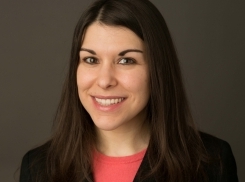The presence of a reservoir of latently infected cells has become the major hurdle for HIV eradication and its elimination is a scientific priority to cure HIV. Besides the ability of latently infected cells to resume viremia after ART interruption, the presence of integrated but defective proviruses can be a driver of the residual immune activation observed in ART-treated patients. Although several strategies are currently being pursued to eliminate this latent reservoir, little progress has been made towards targeting all latent reservoirs, including both intact and defective proviruses. One approach to reduce the impact of all latent reservoirs is to establish long-term silencing. We propose an epigenetic strategy to transcriptionally silence latent HIV reservoirs in CD4 T cells. We will use a recent modification of the cutting-edge CRISPR/Cas9 technology using a Cas9 mutant that lacks endonuclease activity (dCas9) to specifically target epigenetic modifiers to the HIV long-terminal repeat (LTR) and promote epigenetic silencing of HIV. The CRISPR/Cas9 system has become the tool of choice when inducing site-specific chromatin modifications. Specifically, we will explore DNA and histone methylation as both mechanisms have been implicated in long-term silencing of human endogenous retrovirus (HERV) LTRs and could also potentially silence HIV. In Aim 1, we will generate a CRISPR/dCas9 system to silence latent HIV. First, the nuclease activity of Cas9 is inactivated by specifically mutating residues D10 and H840 to alanine (dCas9). These mutations do not affect binding to the short guide RNA (sgRNA) or to the genomic targets. Second, specific domains of epigenetic modifiers are fused to dCas9 to induce site-specific chromatin modifications and induce silencing of the targeted genes. In a similar approach, we will target specific dCas9 constructs to the HIV LTR in order to promote chromatin modifications that render HIV inactive for transcription. These experiments will produce modified Cas9 proteins that can specifically alter chromatin at integrated HIV loci. In Aim 2, we will test the CRISPR/dCas9 system and determine the best way to silence HIV. We will optimize this system in the latently infected cell line JLAT. We will assess which of the three modified Cas9 proteins is able to most effectively silence HIV in five different JLAT clones and test the winner in a primary cell model of latent HIV. These experiments will determine whether induced DNA methylation or repressive histone modifications is the optimal way to silence integrated HIV in the genome. Upon successful completion of these Aims, we expect to have discovered and characterized one or more novel strategies to permanently silence latent HIV-1 in vitro. These could be further studied as potential therapeutic targets towards a functional cure. Drs. Chiappinelli and Bosque will use the results of the proposed experiments to apply for NIH funding for pre-clinical studies of these HIV silencing strategies.
Pilot Award Recipient: Katherine Chiappinelli, PhD
Generation of a CRISPR/Cas9 system to silence latent HIV
April 1, 2021


